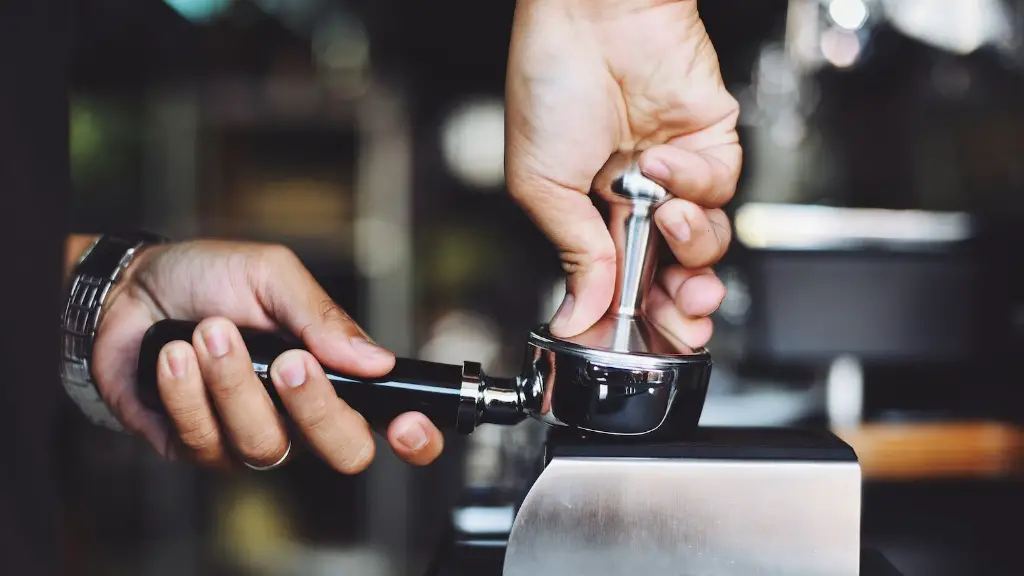How much coffee to drink while pregnant
Whether it’s for functional or social reasons, for many of us, coffee is an integral part of our lives. As caffeine is the active ingredient in coffee, one of the first questions pregnant women tend to ask is how much coffee is safe to drink. While there is no definite answer, evidence suggests some guidelines we can follow to ensure the safest outcome for mother and baby.
Caffeine is a stimulant that can affect both our physical and mental health. Studies have shown that too much caffeine can increase fetal heart rate, lead to inadequate sleep and interfere with the absorption of essential nutrients needed for healthy development. Furthermore, there is evidence linking excessive caffeine intake with an increased risk of miscarriage, stillbirth and low birth weight.
An analysis of studies carried out by the American College of Obstetrics and Gynecology (ACOG) identified that pregnant women should limit their daily caffeine intake to less than 200mg. This is equivalent to two 8-ounce cups of coffee or two-to-three standard cups of tea. It is important to note that certain cold and energy drinks can also contain high amounts of caffeine and should be consumed with caution.
Furthermore, some population studies show that pregnant women who consume more than 200mg of caffeine daily are more likely to give birth prematurely, or give birth to a baby of low birth weight.
Nevertheless, for some expectant mothers, cutting down on caffeine can be difficult, especially if they have become used to consuming it regularly. It is important to remember that reducing caffeine intake doesn’t mean eliminating it completely. There are many ways to reduce our coffee intake, such as drinking decaffeinated coffee or tea, or having coffee after meals to limit absorption of caffeine.
For those women who might choose to enjoy an occasional caffeinated beverage, health experts suggest they time it well as caffeine is absorbed into the bloodstream quickest when consumed on an empty stomach. Additionally, research highlights that drinking coffee in the third trimester of pregnancy may be more harmless than during the first or second trimester.
As a final note, it’s important to check with your doctor for individualized advice on the use of caffeine during pregnancy. Evidence suggests that consuming caffeine in moderation may be fine for most pregnant women, but it is always best to err on the side of caution.
Alternative sources of energy
If cutting back on caffeine is proving to be difficult for you, there are alternative ways to get through your day. Regular physical activity can give you an energy boost and help to combat fatigue. Additionally, try to get adequate rest throughout the day and keep your blood sugar levels balanced by eating small and frequent meals and snacks.
Drinking plenty of water is important too. Water is the best source of hydration and helps to maintain your energy levels throughout the day. Furthermore, there are many herbal teas that can help to keep you hydrated, such as ginger and chamomile, and provide you with a soothing ritual and calming atmosphere.
If you need an extra jolt of energy, reach for snacks with a combination of protein, fat and carbohydrates. Snacks that are high in carbohydrates such as whole grain crackers and berries can give you a temporary energy boost.
In general, try to reduce your stress levels and avoid succumbing to unhealthy habits such as smoking, drinking alcohol or relying on sugar for an energy boost.
Caffeine substitutes
If you are finding it hard to cut back on your coffee consumption, there are other options you can consider. Decaffeinated coffee is widely available and typically contains only around 3mg of caffeine per cup, making it a much lower caffeine alternative. Additionally, there are many coffee alternatives such as barley coffee, chicory root coffee and caffeine-free herbal teas.
These beverages have a coffee-like flavor and provide an enjoyable coffee experience, often they can be just as satisfying and make an excellent coffee substitute. If you are still craving a coffee experience, pour an ounce of espresso over a cup of decaffeinated coffee to get a better flavor or enjoy lattes made with hot dairy or non-dairy milk.
Finally, if you still can not part with your regular cup of Joe, there are low-caffeine versions of regular coffee, such as lightly-roasted varieties, that still come with a fraction of the caffeine content.
Socializing without coffee
For some of us, coffee may be not only a daily beverage but also a social ritual. Many of us enjoy catching up with friends or colleagues over a cup of joe or enjoy an espresso or cappuccino during a break. This can be challenging during pregnancy, as caffeine consumption should be kept to a minimum.
One strategy to limit caffeine consumption is to reduce the number of times you go out for coffee. As an alternative, suggest going for a walk or for lunch together in a cafe or restaurant. Furthermore, there are many other activities such as shopping, going to the cinema, visiting the museum, exploring the city or having a picnic in a park – all without coffee.
Also, if you are attending a gathering where coffee is served, fill up a glass of water or try a non-caffeinated herbal tea. If you find it hard to turn down coffee when it’s offered, then simply opt for a smaller cup size. By substituting a large coffee for a smaller espresso, you will reduce your caffeine intake significantly.
Conclusion
To summarize, while there is no one-size-fits-all answer to how much coffee is safe during pregnancy, evidence suggests that consuming up to 200mg of caffeine daily may be safe, equivalent to two 8-ounce cups of coffee or two-to-three standard cups of tea. It is important to note that certain cold and energy drinks can contain high amounts of caffeine and should be consumed with caution.
Similarly, if caffeine restriction is proving to be difficult, there are alternative sources of energy and caffeine substitutes that allow us to enjoy an occasional caffeinated beverage without compromising the health of mother and baby. Finally, if you are attending a gathering where coffee is served, remember that you can always opt for smaller size cups or try a non-caffeinated option instead.
Nutritional value
While pregnant women should limit their caffeine intake, it’s important to make sure that their nutritional requirements are met. A balanced and varied diet is essential for pregnant women as it supports the health of both the mother and the baby. Eating a variety of nutritious foods can provide all the energy and nutrients needed.
Healthy snacks are important too. Pre-prepared snacks in the fridge or pantry can come in handy when you need to grab a bite on the go. Choose healthy snacks such as fruits, nuts, wholegrain crackers, and low-fat yoghurt. Eating plenty of fibre, like fresh fruits, vegetables, legumes and wholegrains, can also help to keep you feeling fuller for longer.
In addition, pregnant women need to ensure they are getting all the essential nutrients.Getting adequate amounts of protein from sources such as eggs, dairy, fish, and pulses, as well as iron from wholegrains, nuts and leafy greens, is also important for maternal and foetal health.
Prenatal supplements
Whilst nutrition is important for pregnant women, for some women getting enough of each vitamin and mineral can be a challenge. Taking prenatal supplements in addition to a healthy diet can help to improve the nutritional intake of pregnant women.
Some prenatal supplements include essential omega-3 fatty acids that may protect the fetus against some developmental delays or diseases. Additionally, these supplements often contain folic acid, iron, and calcium. Folic acid is particularly important during pregnancy as it helps to prevent neural tube defects and assists with healthy development.
It is important to note that supplements are used to supplement, not replace, a healthy diet. Furthermore, pregnant women should talk to their doctor before taking any supplements as they can interfere with other medications or have other adverse effects on health. Additionally, it is best to opt for supplements of trusted brands as some supplements may contain unsafe ingredients.
Self-care
Caring for yourself during pregnancy is just as important as eating a balanced diet and taking your prenatal vitamins. Along with reducing your caffeine intake and ensuring that you meet your nutritional needs, it is important to make time for yourself to take care of your physical and emotional needs.
Learning how to relax and reduce stress is often more difficult for pregnant women due to the unpredictability of pregnancy. This is why it is important to be adept at managing stress levels. Exercise, practice deep breathing, pamper yourself and make time for activities you enjoy.
Surrounding yourself with positive support is also important. It is essential to have people around to provide unconditional love and emotional support during pregnancy. Moreover, make sure to have you doctor’s contact details at hand in case of an emergency.
While there is no one-size-fits-all answer to how much coffee is safe during pregnancy, making informed choices around caffeine consumption and caring for yourself can make for a comfortable, healthy and happy pregnancy.





